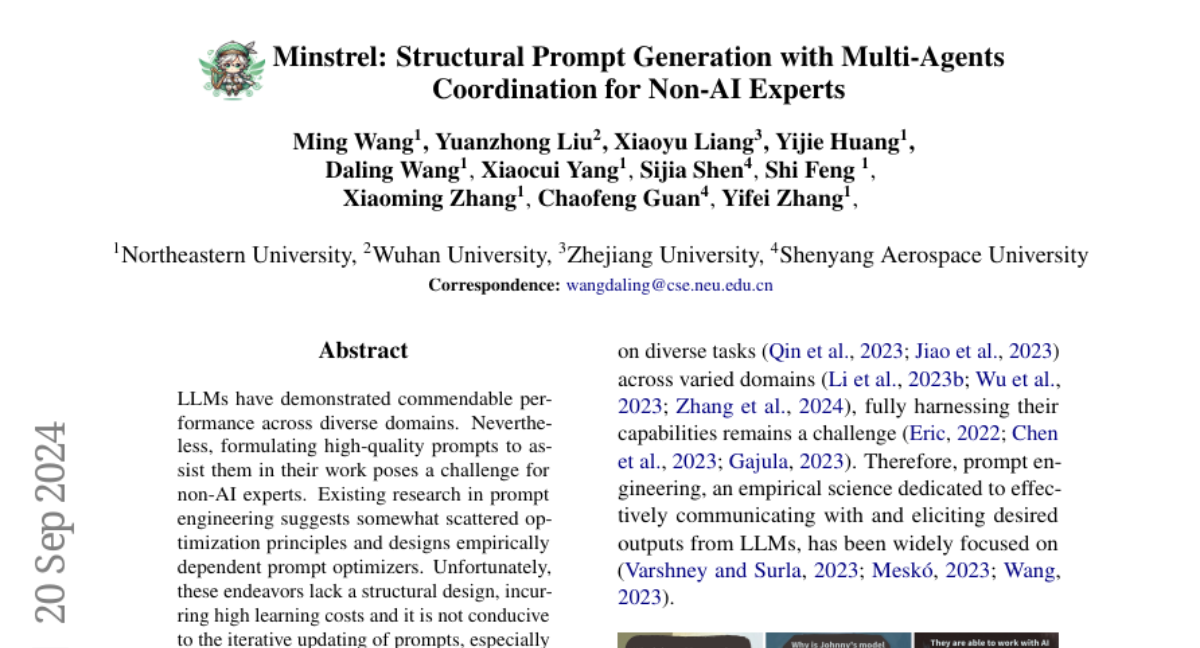Minstrel: Structural Prompt Generation with Multi-Agents Coordination for Non-AI Experts
Ming Wang, Yuanzhong Liu, Xiaoyu Liang, Yijie Huang, Daling Wang, Xiaocui Yang, Sijia Shen, Shi Feng, Xiaoming Zhang, Chaofeng Guan, Yifei Zhang
2024-09-23

Summary
This paper introduces Minstrel, a new system designed to help people who are not AI experts create effective prompts for large language models (LLMs). It uses a team of automated agents to generate structured prompts that improve the performance of these models.
What's the problem?
Creating high-quality prompts for LLMs can be difficult, especially for those who are not familiar with AI technology. Existing methods for prompt engineering can be scattered and complicated, making it hard to learn how to create effective prompts. This leads to high learning costs and inefficiencies in updating prompts over time.
What's the solution?
To address these challenges, the researchers developed Minstrel, which uses a multi-agent system that breaks down the prompt creation process into three main groups: analysis, design, and testing. Each group has specific tasks, allowing them to work together to generate better prompts. This structured approach makes it easier for users to create effective prompts without needing extensive AI knowledge. The paper also shows that prompts generated by Minstrel significantly enhance the performance of LLMs compared to traditional methods.
Why it matters?
This research is important because it democratizes access to powerful AI tools by making it easier for non-experts to use LLMs effectively. By simplifying the prompt creation process, Minstrel allows more people to leverage AI for various tasks like writing, brainstorming, and problem-solving, ultimately broadening the impact of AI technologies in everyday applications.
Abstract
LLMs have demonstrated commendable performance across diverse domains. Nevertheless, formulating high-quality prompts to assist them in their work poses a challenge for non-AI experts. Existing research in prompt engineering suggests somewhat scattered optimization principles and designs empirically dependent prompt optimizers. Unfortunately, these endeavors lack a structural design, incurring high learning costs and it is not conducive to the iterative updating of prompts, especially for non-AI experts. Inspired by structured reusable programming languages, we propose LangGPT, a structural prompt design framework. Furthermore, we introduce Minstrel, a multi-generative agent system with reflection to automate the generation of structural prompts. Experiments and the case study illustrate that structural prompts generated by Minstrel or written manually significantly enhance the performance of LLMs. Furthermore, we analyze the ease of use of structural prompts through a user survey in our online community.